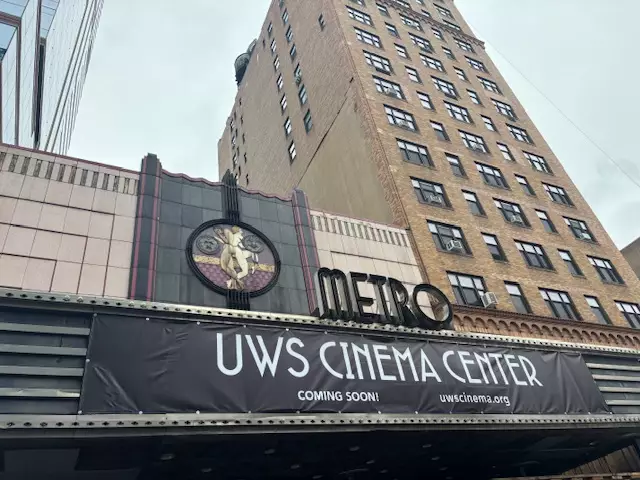The Upper West Side, known for its vibrant cultural history, is set to regain a treasured piece of its artistic landscape with the transformation of the former Metro Theater into a five-screen arthouse cinema. This significant project, fueled by both public and private funding, exemplifies a community’s commitment to revitalizing cultural spaces that have long been neglected. Under the leadership of film industry veteran Ira Deutchman and his partner Adeline Monzier, the newly formed Upper West Side Cinema Center aims to breathe new life into a once-thriving venue, ensuring that independent cinema once again flourishes in a region that has experienced a cinematic drought since the closure of the Lincoln Plaza Cinema.
Deutchman, who has a notable history of supporting independent films and cinematic arts, expressed his excitement about the overwhelming support for this initiative. The financial backing, which totaled $6.9 million at the time of acquisition, stems from various sources, including government grants and contributions from philanthropic organizations like the Hearthland Foundation. The enthusiasm of high-profile industry figures like Martin Scorsese and Frances McDormand, who have rallied to provide their expertise and counsel, underscores the project’s cultural importance.
A Theater with a Mission
The vision for the new arthouse theater extends far beyond just screenings. The plans include a café that will invite foot traffic from the street and an educational center designed to foster engagement with cinematic arts. By presenting film classics, foreign offerings, and groundbreaking independent productions, the Upper West Side Cinema Center aims to create a diverse programming agenda that caters to both cinephiles and casual viewers alike. The emphasis on educational programming highlights a commitment to nurturing a new generation of film enthusiasts, providing workshops and discussions that would otherwise be absent in the area.
Deutchman’s reflections on the integral role of cinema in community building resonate profoundly, especially in today’s increasingly digital age, where online streaming options have begun to overshadow collective experiences. He passionately articulated how the historical significance of the Metro Theater extends beyond its physical structure; it’s a vessel for cultural dialogue and community connection that has been sorely missed. The reopening of such a venue will play a crucial role in revitalizing shared experiences, pushing back against the isolating effects of modern life.
A Battle Against the Erosion of Culture
For nearly twenty years, the Metro Theater stood forsaken, a stark reminder of diminished cultural engagement in the Upper West Side. Neighborhoods across Manhattan have seen spaces for independent film thrive, yet this area has struggled to remain relevant in the cinematic conversation. The community’s desire to restore the Metro Theater reflects a yearning not just for entertainment but for a return to a shared space where stories can be told and appreciated together.
New York State’s financial support, as mobilized by proactive leaders like Governor Kathy Hochul and Senator Brad Hoylman-Sigal, is critical to the project’s success. Their recognition of the theater’s cultural significance enables the Upper West Side Cinema Center to reclaim the once-abandoned site and turn it into a hub for artistic expression. Governor Hochul’s comments about the theater’s historical value underline its potential to serve as a locus for both joy and critical reflection within the community.
As they embark on an ambitious fundraising campaign, the visionaries behind this project are mindful of the necessity for comprehensive planning and community engagement. They estimate the total cost of refurbishing the theater to fall between $15 million to $22 million—a challenging goal, but one that seems increasingly feasible given the community’s backing.
A Cultural Renaissance on the Horizon
The enthusiasm surrounding the Upper West Side Cinema Center taps into a broader awakening concerning the importance of film and art as fundamental expressions of human experience. As various corners of the city embrace the arts, it is imperative that the Upper West Side re-establishes its identity as a locale where stories can be shared, and diverse voices can be celebrated. This transformation represents not just a physical renovation but a cultural renaissance, offering a rallying point for those who cherish the power of cinema to reflect and shape our societal narratives.
In an era where many venues succumb to the pressures of commercialism or obsolescence, the commitment to an arthouse model is both refreshing and necessary. By marrying quality film programming with community outreach and educational initiatives, the Upper West Side Cinema Center is poised to become a beacon for independent cinema, fostering a new generation of filmmakers, actors, and audiences. The revival of the Metro Theater promises to turn a once-forgotten monument of cultural vibrancy back into a thriving community cornerstone, reconnecting the residents of the Upper West Side through the unifying language of film.


Leave a Reply